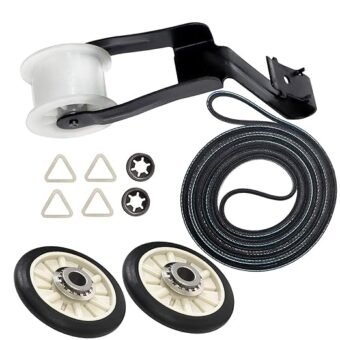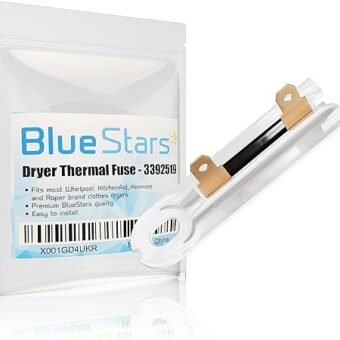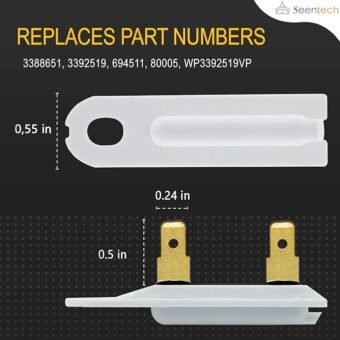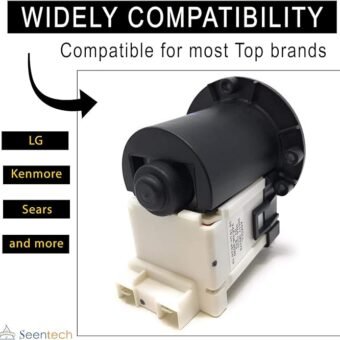Understanding the Need for Regular Household Replacements
Regular replacements of household items are a critical aspect of maintaining a safe, efficient, and healthy living environment. From ensuring optimal functionality to mitigating potential risks, understanding the importance of periodic updates can significantly enhance the overall quality of life within your home.
One of the primary reasons for regular household replacements is safety. Using outdated or worn-out items poses significant hazards, such as an increased risk of accidents or even fire hazards. Consider the critical role of smoke detector batteries; failing to replace them timely could mean the difference between awareness and disaster in case of a fire. Similarly, old or frayed electrical cords and damaged kitchen appliances have the potential to spark fires, emphasizing the necessity for periodic assessments and updates.
Efficiency is another key factor. For instance, HVAC (Heating, Ventilation, and Air Conditioning) filters, when left unchanged, can clog and hinder proper airflow, leading to reduced energy efficiency and higher electricity bills. The same applies to light bulbs; using energy-efficient LED bulbs not only reduces electricity consumption but also provides better and longer-lasting illumination. Regular replacement and maintenance of these items ensure that your household operates at peak efficiency, saving you money in the long run.
Timely replacements also contribute to enhanced durability and improved functionality of home appliances and systems. By replacing parts before they become completely worn out, you can often avoid more significant and expensive repairs. This proactive approach extends the life of your appliances and maintains their performance, supporting smoother daily operations within your household.
Moreover, regular maintenance and replacements play a pivotal role in fostering a cleaner and healthier living environment. For example, frequently replacing HVAC filters improves indoor air quality by trapping dust, pollen, and other allergens, thereby contributing to a healthier living space. Routine updates to items like water filters and cleaning supplies ensure that your household not only stays clean but also free from potential contaminants.
Common household items that typically require regular replacements include smoke detector batteries, HVAC filters, light bulbs, and various kitchen appliances such as coffee makers, microwaves, and blenders. Staying vigilant about the condition of these items can lead to significant improvements in safety, efficiency, and overall well-being at home.
Essential Replacement Timelines and Tips for Key Household Items
Maintaining a safe and efficient home requires regular replacement of key household items. Understanding when to replace these items and how to properly maintain them ensures that your home remains both safe and up-to-date. Here’s a detailed breakdown based on different areas of the house:
Kitchen
In the kitchen, water filters should be replaced every 2-6 months depending on usage and manufacturer recommendations. Signs that a water filter needs replacement include reduced water flow or unpleasant taste. Additionally, kitchen sponges and dishcloths should be replaced every 1-2 weeks due to bacterial buildup. Look for eco-friendly, biodegradable options to minimize environmental impact.
Bathroom
Toothbrushes are essential for oral hygiene and should be replaced every three months or sooner if the bristles are frayed. Regular replacement ensures effective cleaning and protects against bacteria. For larger items, consider replacing bathroom ventilation fans every 5-10 years to maintain air quality and prevent mold growth. Upgrading to a more energy-efficient model can also help reduce electricity consumption.
Living Room
Furnace filters play a crucial role in maintaining indoor air quality and should be replaced every 1-3 months, depending on the filter type and environmental factors. Dirty filters reduce HVAC efficiency and can lead to higher energy costs. Modern HEPA filters are highly effective and can capture smaller particles, providing a healthier environment for your family.
General Home Maintenance
Fire extinguishers are indispensable for home safety and should be checked monthly and replaced every 10-12 years. Be sure to inspect the gauge to ensure it is fully charged. Smoke detector batteries should be replaced annually, and the entire unit should be replaced every 10 years. Properly dispose of old fire extinguishers and smoke detectors according to local regulations to ensure environmental safety.
In summary, setting a regular schedule for checking and replacing household items can greatly contribute to maintaining a safe, efficient, and eco-friendly home. Look for signs of wear and tear, stay mindful of expiration dates, and consider modern innovations to keep your household updated. By being proactive, you can ensure that all aspects of your home remain in optimal condition for the well-being of your family.





